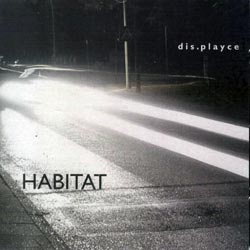
An organized sound work paying homage to German cartographer Karl Ortmann; and a piece built around the video installation "MSTM Wall" by British media artist Ian W. Coel.
Out of Stock
Quantity in Basket: None
Log In to use our Wish List
Shipping Weight: 5.00 units
Sample The Album:
Maximilian Marcoll-electronics
Hannes Galette Seidl-electronics
Click an artist name above to see in-stock items for that artist.
UPC: 5609063401059
Label: Creative Sources
Catalog ID: CS105
Squidco Product Code: 10553
Format: CD
Condition: New
Released: 2008
Country: Portugal
Packaging: Jewel Tray
"The piece "Karl Ortmann" pays homage to the German cartographer from Ilmenau (*1817 - 1879). His life's work consisted of finding a way to illustrate social structures of cities within the context of maps. According to his theories maps should reflect various aspects of the cohabitation of a city's residents. Karl Ortmann described his research as follows: "Nicht bloß die leblose Materie der Gebäude und Straßen, die den sozialen Aspekt gänzlich negieren, sondern gerade das Zusammenspiel zwischen Wohnraum und Einkommensverhältnis, zwischen Wohndichte und gesellschaftlichem Stand der Bewohner sollen erhellt werden." * Karl Ortmann remained unknown during his lifetime and it is just by chance that we know of his concepts that were never realised.
Our piece is exclusively made of sounds of the city of Karlsruhe (southern Germany), recorded during one week in September 2005. A central structural element for us was a set of recordings we made during the night before (and the morning of) the German polling day in 2005. For approximately twelve hours, we recorded three minutes of audio every thirty minutes, using two microphones set up on a balcony in a residential area. These recordings were cut together, leaving their chronological order (and the sound quality) unchanged. This artificial soundscape is playing throughout the piece with one short interruption. Sometimes inaudible, sometimes present as a main element it structures the piece. Other recordings we used were made during daytime in different parts of the city (e.g. noise of streetcars, people playing basketball, sounds in a park etc). Next we started to create sound processing tools to use in COOPER, especially designed to fit our needs for a social-cartographic sound: a grid filter, a special granular tool etc. The recordings were then processed and structured with COOPER's meta-parameter control feature. This way we obtained new aspects of the original recordings, resulting in a range of sound material reaching from pure and recognisable to extremly artificial and abstract sounds.
Our intention was to create a moment in which the listener would realise the urban origin of the sound material, a moment where the space (both the concert room and the room of the speakers) breaks open and it becomes impossible to determine whether a certain sound is a plain recording or a processed one and whether it is happening in- or outside the concert room.The whole piece could be described as a non-linear accumulative process of recorded sound components. The last few minutes of the piece are almost pure unprocessed soundscapes from the residential area, enriched with only very few processed sounds. Apart from the fact that even a plain recording of reality does not necessarily represent reality, the possibility that the recordings (or even more) are actually faked could arise.
The piece "Ian W. Coel" is built around the video installation "MSTM Wall" (Short Time Memory Wall) by british media artist Ian W. Coel (*1952) from 1988. "STM Wall&rduo; is a video wall, equiped with cameras and set up in a public space, taking pictures of its surrounding in front and behind the wall and displaying these pictures on its video screens. Newer pictures are drawn on top of older ones, which are still visible. So, older pictures fade away and newer pictures are always bright and clear. In addition, the walls surface is reflecting - the observer can watch himself and his surrounding in motion, too. Our piece is best performed in a space at ground level, with a window to a street. The setup consists of two performers on laptops and a mixing desk, if possible placed in front of the window. Both performers are facing the audience. A stereo microphone or two mono microphones are placed outside the room, focussing the street. Some time before the performance, we make recordings of the performance space itsself and of the street in front of the performance space (with people crossing, cars passing etc.). The recordings will then be edited after a predefined structure to be included in the piece. During the performance the recordings are set into relation with electronic manipulations of street- and performance-space-recordings and to live amplification of realtime street-sounds via the microphones. This way, every performance is unique and set up specifically for the particular situation. Still, the piece stays coherent because of the pre-structured editing process and the score which describes the overall disposition. As a result, there is an uncertainty about the source of sound, a tension between the realtime amplified ambience, the pre-recorded parts from the very same location, the electronic derivates and the action that happens on the street outside, which is always visible to the audience."-from the dis.playce website

The Squid's Ear!
Get additional information at dis.playce website
Artist Biographies
Related Categories of Interest:
Creative Sources
Electro-Acoustic
Organized Sound and Sample Based Music
Duo Recordings
Installation Sound Work
Track Listing:
1. Ian W. Coel 18:09
2. Karl Ortmann 20:15
Creative Sources
Electro-Acoustic
Organized Sound and Sample Based Music
Duo Recordings
Installation Sound Work
Search for other titles on the label:
Creative Sources.

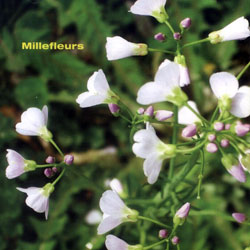
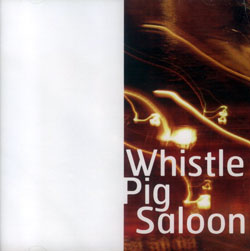
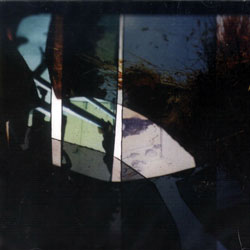
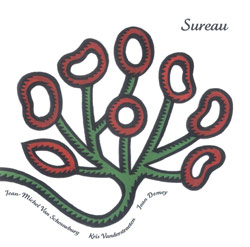
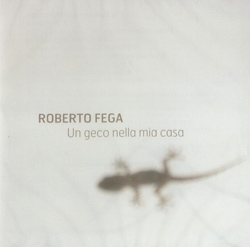
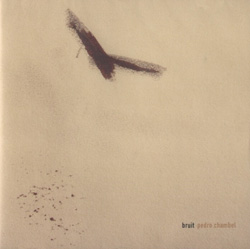
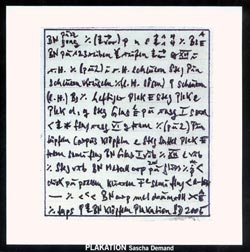


![Guy, Barry / Ken Vandermark: Occasional Poems [2 CDs]](https://www.teuthida.com/productImages/misc4/34849.jpg)
![Novoa / Carter / Mela Trio: Vol.1 [VINYL]](https://www.teuthida.com/productImages/misc4/35236.jpg)


![Elephant9 : Mythical River [VINYL]](https://www.teuthida.com/productImages/misc4/34624.jpg)
![Evans, Peter (Evans / Eldh / Black): Extra [VINYL]](https://www.teuthida.com/productImages/misc4/35279.jpg)

![McPhee, Joe: Straight Up, Without Wings [BOOK]](https://www.teuthida.com/productImages/misc4/35454.jpg)
![Jeck, Philip: rpm [2 CDs]](https://www.teuthida.com/productImages/misc4/35455.jpg)













![Barker / Parker / Irabagon: Bakunawa [VINYL]](https://www.teuthida.com/productImages/misc4/35533.jpg)
![Blaser, Samuel / Marc Ducret / Peter Bruun: Dark Was The Night, Cold Was The Ground [VINYL 10-inch]](https://www.teuthida.com/productImages/misc4/35492.jpg)








![Warren, Kenny (Warren / Hoffman / Ellman): Sweet World [VINYL]](https://www.teuthida.com/productImages/misc4/35451.jpg)




![Blake, Ran / Dave Knife Fabris: Live Amsterdam 2006, First Visit [CD + POSTCARDS]](https://www.teuthida.com/productImages/misc4/35275.jpg)













![DNS: Taking Big Bites Of The Khandas Three Cafes Deep [2 CDs]](https://www.teuthida.com/productImages/misc4/35334.jpg)




![Cleaver, Gerald: The Process [VINYL]](https://www.teuthida.com/productImages/misc4/34966.jpg)




![Alva Noto: HYbr:ID II [VINYL 2 LPs]](https://www.teuthida.com/productImages/misc4/35201.jpg)

![Baron, Derek / Luke Martin: Distinct and Concealed [CASSETTE + DOWNLOAD]](https://www.teuthida.com/productImages/misc4/35079.jpg)

![Lyle, Erica Dawn : Colonial Motels [CASSETTE + DOWNLOAD]](https://www.teuthida.com/productImages/misc4/35080.jpg)









![Sanna, Claudio: Compositori Sardi Contemporanei II [2 CDs]](https://www.teuthida.com/productImages/misc4/35317.jpg)







![Zurria, Manuel: Fame di Vento [3 CDs]](https://www.teuthida.com/productImages/misc4/35167.jpg)

![Granberg, Magnus / Nattens Inbrott / Skogen: Holde Traume, Kehret Wieder! [2 CDs]](https://www.teuthida.com/productImages/misc4/35038.jpg)
![Frey, Jurg: Outermost Melodie [2 CDs]](https://www.teuthida.com/productImages/misc4/35039.jpg)

![Pavone, Jessica: Reverse Bloom [VINYL]](https://www.teuthida.com/productImages/misc4/34895.jpg)




![Modney (Modney / Wooley / Gentile / Roberts / Pluta / Symthe / ...): Ascending Primes [2 CDs]](https://www.teuthida.com/productImages/misc4/34852.jpg)









![Elephant9 with Terje Rypdal: Catching Fire [VINYL 2 LPs]](https://www.teuthida.com/productImages/misc4/35355.jpg)
![Deerlady (Obomsawin, Mali / Magdalena Abrego): Greatest Hits [VINYL]](https://www.teuthida.com/productImages/misc4/34876.jpg)




![Haino, Keiji: Black Blues [2 CDs]](https://www.teuthida.com/productImages/misc4/35109.jpg)



![Surplus 1980: Illusion of Consistency [CD]](https://www.teuthida.com/productImages/misc4/35069.jpg)
![Staiano, Moe: Away Towards the Light [VINYL + DOWNLOAD]](https://www.teuthida.com/productImages/misc4/35037.jpg)



![Caveira (Gomes / Sousa / Abras / Ferrandini): Ficar Vivo [VINYL]](https://www.teuthida.com/productImages/misc4/34643.jpg)
![Gregg, J. J. / David Van Auken: Lunar Prairie [CD w/ DOWNLOAD]](https://www.teuthida.com/productImages/misc4/34611.jpg)

![Coultrain: Mundus [VINYL]](https://www.teuthida.com/productImages/misc4/32439.jpg)
![Mattin: Songbook #6 [VINYL]](https://www.teuthida.com/productImages/misc4/27317.jpg)
![Punkappella: Wake Up [7-inch VINYL]](https://www.teuthida.com/productImages/misc4/17519.jpg)
![Residents, The: WARNING: UNiNC.: Live And Experimental Recordings 1971-1972 [VINYL 2 LPs]](https://www.teuthida.com/productImages/misc4/31521.jpg)
![Coultrain: Phantasmagoria [VINYL]](https://www.teuthida.com/productImages/misc4/30142.jpg)
![Lennon, Sean Ono: Asterisms [VINYL]](https://www.teuthida.com/productImages/misc4/34517.jpg)

![Coley, Byron: Dating Tips for Touring Bands [VINYL]](https://www.teuthida.com/productImages/misc4/17906.jpg)

![Lost Kisses: My Life is Sad & Funny [DVD]](https://www.teuthida.com/productImages/misc4/lostKissesDVD.jpg)